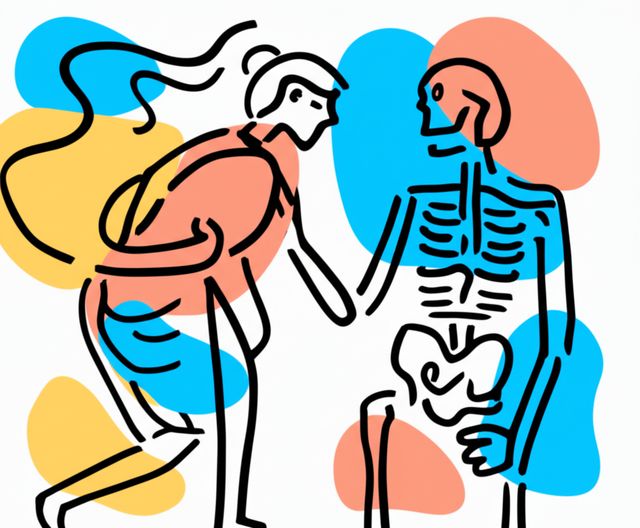Musculoskeletal System
The musculoskeletal system is a complex system of bones, muscles, tendons, ligaments, and joints that work together to provide support, stability, and movement for the body. It is the framework of the body and allows us to perform a wide range of activities, from simple tasks like walking and talking to complex ones like running and jumping.
Components of the Musculoskeletal System
The musculoskeletal system is made up of several components, including:
- Bones: Bones are the hard, mineralized tissues that provide the body with its structure and support. They protect the organs, provide leverage for movement, and store minerals and fats.
- Muscles: Muscles are the soft tissues that allow the body to move. They contract and relax to pull on bones, causing movement.
- Tendons: Tendons are the tough, fibrous tissues that connect muscles to bones.
- Ligaments: Ligaments are the tough, fibrous tissues that connect bones to bones.
- Joints: Joints are the points where two or more bones meet. They allow the bones to move against each other.
Functions of the Musculoskeletal System
The musculoskeletal system has a number of important functions, including:
- Support: The musculoskeletal system provides support for the body and helps to protect the organs.
- Stability: The musculoskeletal system helps to keep the body stable and prevent it from falling over.
- Movement: The musculoskeletal system allows the body to move by contracting and relaxing muscles.
- Storage: The musculoskeletal system stores minerals, such as calcium and phosphorus, and fats.
Musculoskeletal Disorders
There are a number of disorders that can affect the musculoskeletal system, including:
- Arthritis: Arthritis is a condition that causes inflammation of the joints.
- Osteoporosis: Osteoporosis is a condition that causes bones to become weak and brittle.
- Muscle strains and sprains: Muscle strains and sprains are injuries to muscles and ligaments, respectively.
- Tendonitis: Tendonitis is an inflammation of the tendons.
- Bursitis: Bursitis is an inflammation of the bursae, which are the fluid-filled sacs that cushion the joints.
Why Study the Musculoskeletal System?
There are many reasons why you might want to study the musculoskeletal system. If you are interested in a career in health care, such as medicine, nursing, or physical therapy, you will need to have a strong understanding of the musculoskeletal system. Additionally, if you are interested in pursuing a career in fitness or sports, you will benefit from learning about the musculoskeletal system.
Studying the musculoskeletal system can also be beneficial for personal reasons. For example, if you are interested in improving your health and fitness, you can learn about how the musculoskeletal system works to improve your posture, prevent injuries, and enhance your performance.
Careers in the Musculoskeletal Field
There are a number of careers that are related to the musculoskeletal system, including:
- Doctor: Doctors diagnose and treat disorders of the musculoskeletal system.
- Nurse: Nurses provide care for patients with musculoskeletal disorders.
- Physical therapist: Physical therapists help patients regain movement and function after an injury or surgery.
- Occupational therapist: Occupational therapists help patients with musculoskeletal disorders perform everyday activities.
- Athletic trainer: Athletic trainers help athletes prevent and treat injuries.
Online Courses in Musculoskeletal System
There are many online courses that can help you learn about the musculoskeletal system. These courses can provide you with a comprehensive overview of the musculoskeletal system, or they can focus on a specific area of interest, such as anatomy, physiology, or pathology. Some of the most popular online courses in musculoskeletal system include:
- Anatomy: Musculoskeletal and Integumentary Systems
- Engineering Health: Introduction to Yoga and Physiology
- Ergonomics in Design
- Medical Terminology I
- Fundamental Sports related Musculoskeletal Anatomy
- Experiments and Variations in Bipedalism
Online courses can be a great way to learn about the musculoskeletal system. They offer a flexible and convenient way to learn at your own pace. Additionally, many online courses offer interactive features, such as quizzes, exams, and discussions, that can help you engage with the material and improve your understanding.
Conclusion
The musculoskeletal system is a complex and fascinating system that plays a vital role in our overall health and well-being. By understanding the musculoskeletal system, you can improve your physical performance, prevent injuries, and make informed decisions about your health care.


